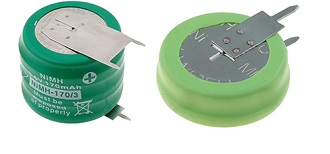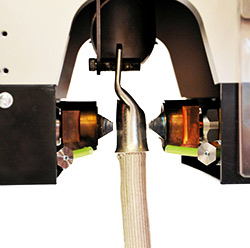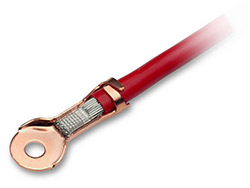Welded joints

Welded joints are created by mechanically pressing two metal elements together, and then briefly heating the contact point, until the metal melts and permanently integrates the elements together.
Operation of a welder
To create welded joints, you need a welder, i.e. a device that provides required energy and desired mechanical pressure.
A welder works by conducting high current at low voltage in such a way to heat a small point, melt the metal and weld it.
The pressure is realized with the use of copper electrodes in the shape of a skewer, which also serve as powering electrodes.

Characteristics of welded joints
One of the advantages of welding is its low cost. It allows you to connect metals that are hard to solder (e.g. aluminium) without the need for a fluxing agent. Welded connections are durable and resistant to mechanical factors. The process of welding is fast, and the metals are joined pointwise.
This method can be applied for connecting components that cannot be heated even for a brief period of time, such as:
- batteries and rechargeable batteries - battery contacts are mounted exclusively with the use of this method.
- high-power components that heat up strongly, e.g. heater connectors or a resistance wire with copper contacts – in such situations, high temperature might melt the soldering alloy.
- small contact blades (e.g. earth terminal) in a large, metal enclosure. Heating up and covering such a connection with an alloy using a soldering tool (even a high-power one) might be impossible.

See also:
Summary
To create a welded joint, you can use resistance welders, capacitor spot welders, or ultrasonic welders, which vary according to the method of heating up metal at the connection point. This is a disadvantage of this method, as these devices are usually large, heavy, and expensive, especially those designed for welding large components.













